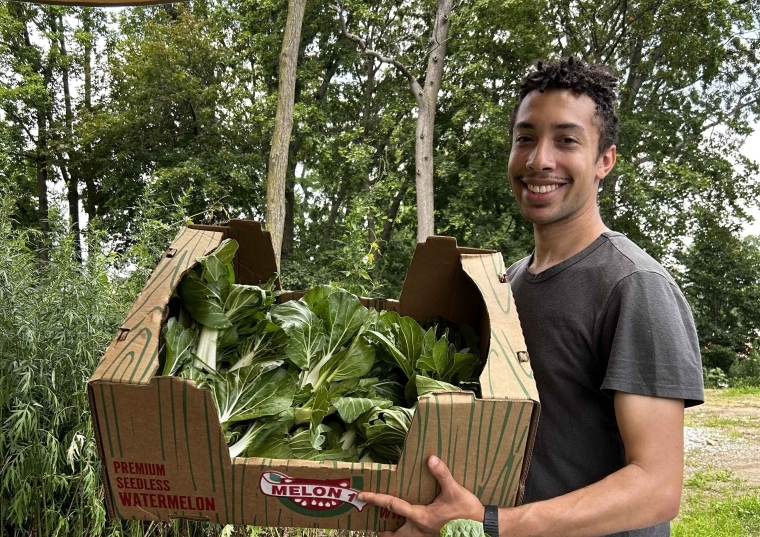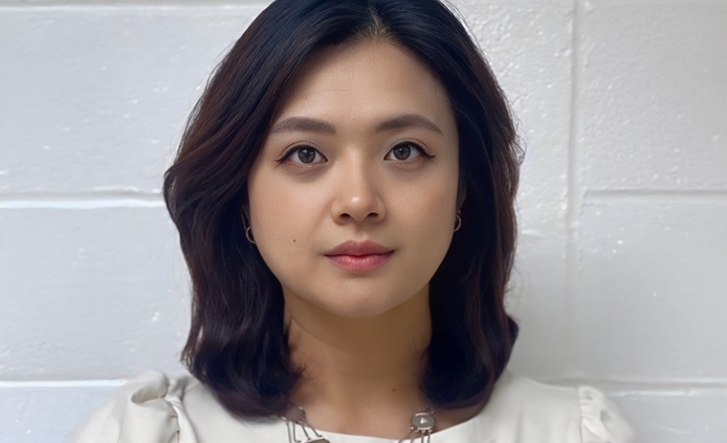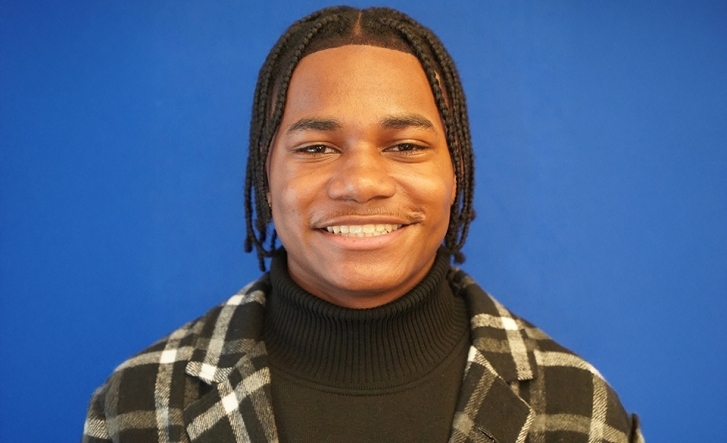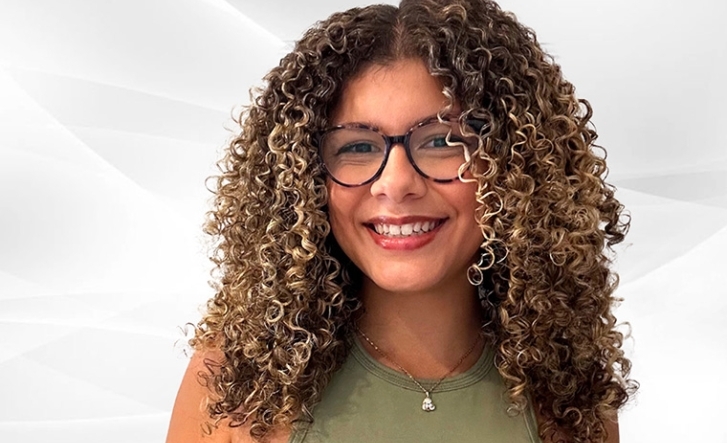Student Sees Possibilities in Urban Ecology and Sustainability
Sustainability is more than an experiment for St. John’s University student Lucas Shears. It’s a way of life.

“Lucas’ contributions to St. John’s reach far beyond the classroom,” Dr. Greaney said. “He contributes his time, talents, and passion for the environment to our campus community and is eager to serve those less fortunate than ourselves.
Born into a family of green thumbs in rural Rhode Island, Lucas, a senior majoring in Environmental Science with a minor in Physics, is spreading the good news of eco-friendliness across campus as a member of the Earth Club and a student worker in the Office of Sustainability. He was among a small group of students who, to commemorate Earth Day in April, reopened the campus organic garden, raising vegetables to feed the hungry and planting trees to reduce carbon inefficiency.
Getting his hands dirty is a way of living out the University’s Vincentian mission, Lucas said.
“If you can see God in people who are suffering from food insecurity, and you have the technology and knowledge to help them, why wouldn't you?” Lucas asked. “The Vincentian mission is about caring for the less fortunate, and it’s a beautiful and valuable message.”
Despite being raised in the Ocean State, Lucas has always felt more comfortable digging in the dirt. His hometown of Warren, RI, is in the heart of farm country, about a half-hour southeast of Providence, the state capital. His grandparents taught him to farm, but it was his decision to enroll at St. John’s that opened his mind to the possibilities of urban ecology.
Crops grown in urban environments like Queens, can be harvested in public parks, corporate green spaces, courtyards, and even rooftops. Over time, that could ease the food insecurity crisis, which impacts more than one million local residents, according to the Food Bank for New York City.
Trees planted in urban areas help absorb pollutants and reduce carbon dioxide helping residents breathe cleaner, air.
The Queens campus organic garden was always managed by students until the COVID-19 pandemic began. This year the garden produced lettuce, bok choy, kale, and tomatoes. Vegetables not consumed on campus before the end of the spring semester were donated to the St. John’s Bread & Life food pantry in Brooklyn.
“That’s what drives me to do something considered unlikely or impossible,” Lucas said. “I want to find out how we can create a world that works for future generations, where people can have quality food in vast volumes.”
“I think what we do here is tremendous,” Lucas continued. “It’s proof of concept. If it works here in Queens, it can work in Brooklyn, and it can work in the Bronx. We can grow produce in each of the five boroughs and help people who need it.”
Agriculture is a leading industry in the United States, contributing more than one trillion dollars annually to the nation’s gross domestic product. One in 10 jobs is linked to the agriculture sector.
Despite that, Lucas believes there is still room for growth and innovation—particularly in agricultural science, an area of potential career interest. Agricultural scientists research ways to improve the efficiency and safety of industry products and practices.
While pursuing his Eagle Scout certification, Lucas designed a service project to improve irrigation across farms in his hometown. However, COVID-19 shutdowns forced him to pivot to a less public effort.
“Warren, RI, has water on both sides. Whenever it rains, it floods,” Lucas explained. “When it snows, it ices over. It is a place of extremes.”
“It would have been nice to have gotten to shallow out some of the drainage,” he continued. “That was the goal—but COVID had another plan.”
If not as an agricultural innovator, Lucas believes his studies at St. John’s will prepare him for a career as a sustainability officer, responsible for helping large companies monitor their energy use and environmental impact. It is considered a growth field as corporations try to become more eco-conscious.
As a student sustainability coordinator, Lucas is part of a four-person team that helps to manage recycling, composting, and conservation efforts campuswide, as well as food waste recovery.
“His passion for environmentalism and enthusiasm for learning about the natural world was evident from our first conversation,” said Peter Barker ’13C, Associate Director of Environmental and Energy Conservation. “Lucas is an invaluable asset to the sustainability team, and I know he will bring his changemaker mentality to whatever sustainability endeavor he takes on next.”
Colleen Greaney, Ph.D., Director, Environmental Health and Safety, and Adjunct Professor, Theology and Religious Studies, also sees a rosy future for the 21-year-old agriculture enthusiast.
“Lucas’ contributions to St. John’s reach far beyond the classroom,” Dr. Greaney said. “He contributes his time, talents, and passion for the environment to our campus community and is eager to serve those less fortunate than ourselves. I am confident Lucas will continue to embrace environmental challenges and impact our society for the common good.”



